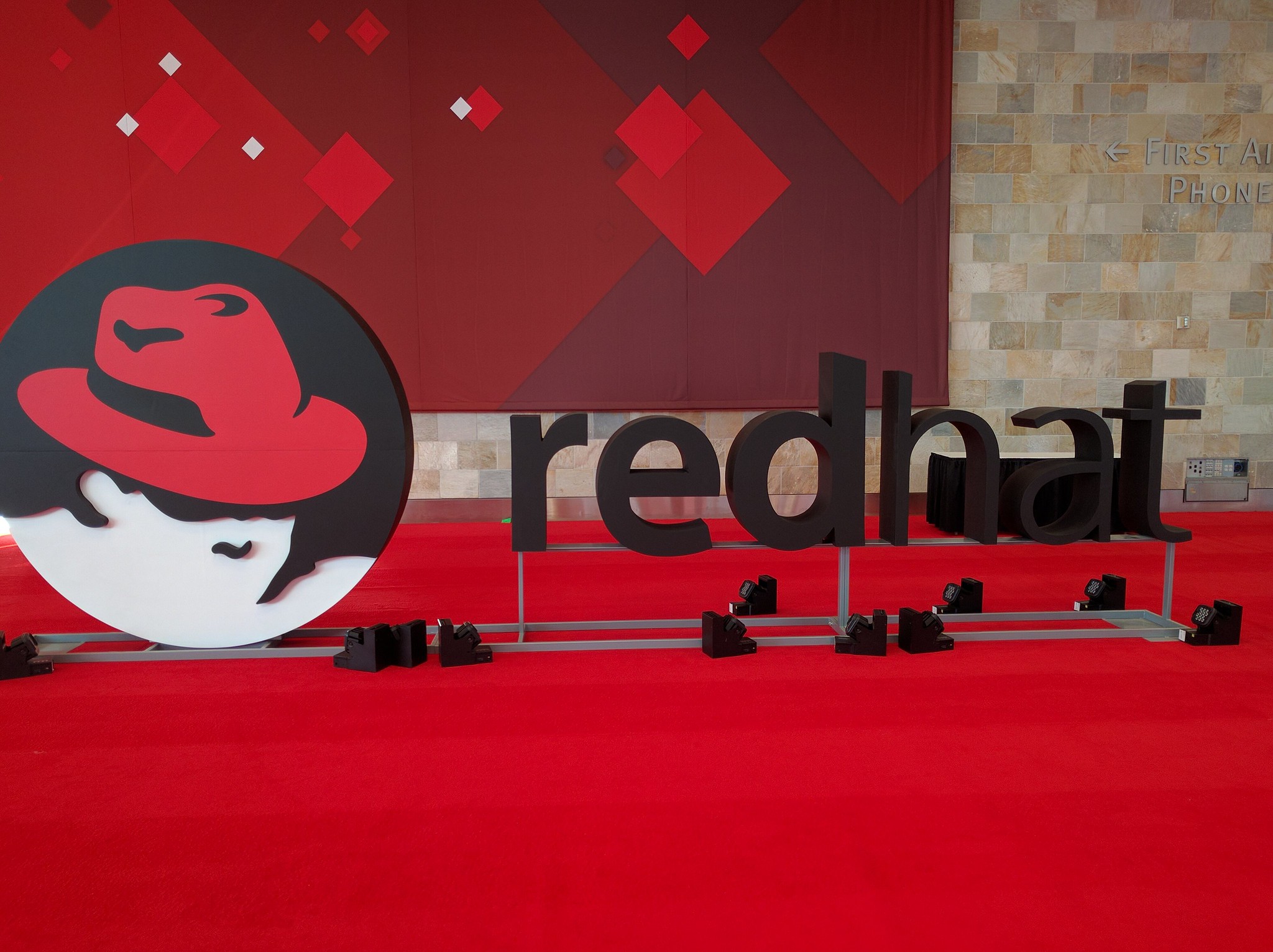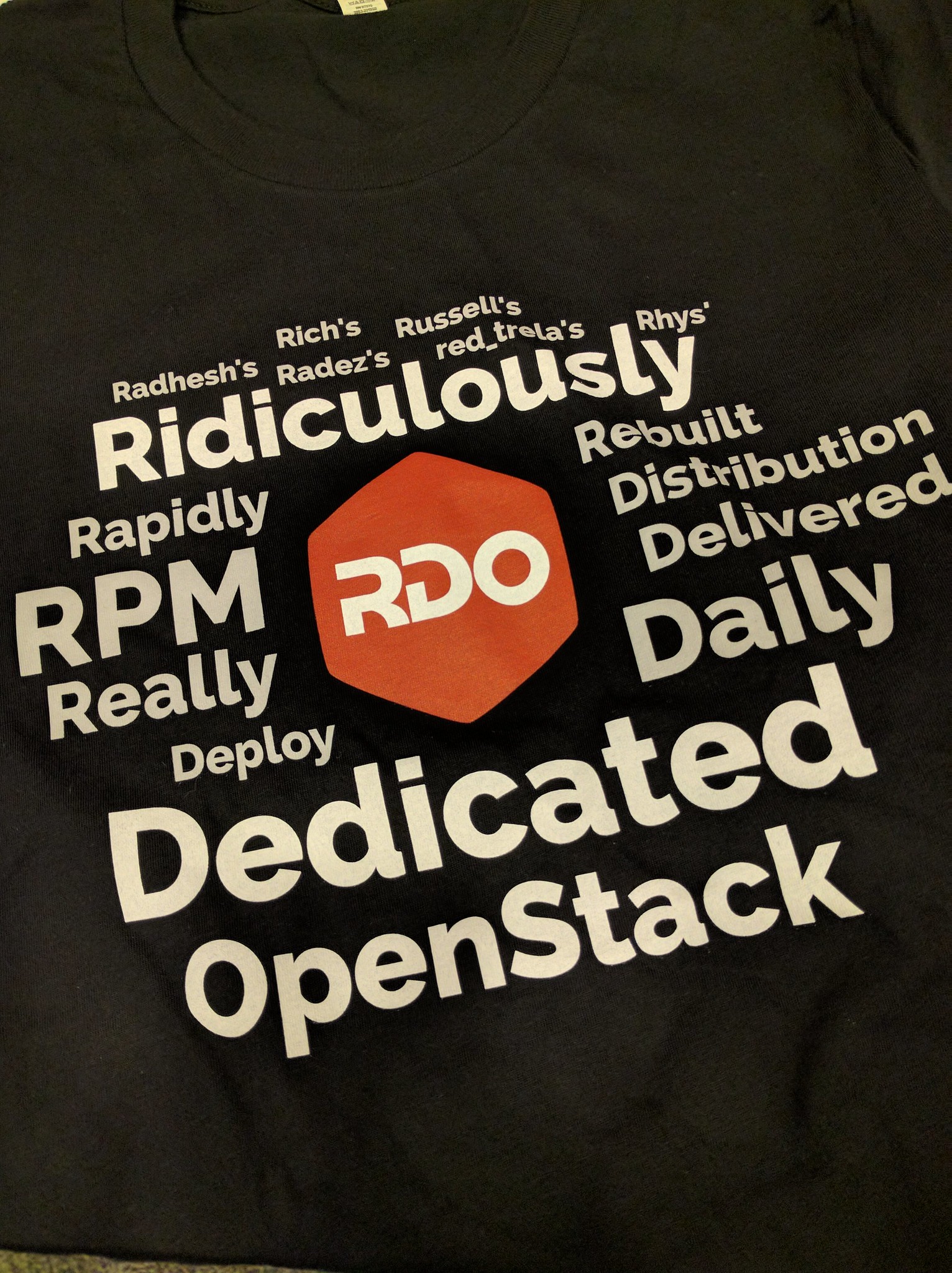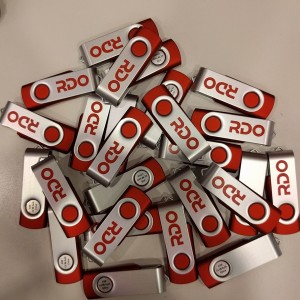
Despite my best intentions of blogging every day at Red Hat Summit, time got away from me, as it often does at these events. There’s always 3 things going on, and it’s hard to find a moment between that first cup of coffee, and stumbling into bed at the end of the night.
I spent almost the entire event working the RDO booth in the Community Central section of the expo hall. While traffic wasn’t as heavy as at OpenStack Summit, it was still pretty constant.
In the swag department, I had our “what does RDO stand for” tshirts, and TripleO QuickStart USBkeys.

Several things stood out to me from this audience.
First, I was delighted to hear story after story of companies that use RDO in the test/dev/lab environment, and use Red Hat OpenStack Platform in their public/production environments. This is what I really want to see happening, so it’s very gratifying when I get anecdotal evidence that it is happening. Now, if I can only convince those folks to follow up with case study writeups for the user stories page.
Second, from people who were not quite as familiar with either RDO or OpenStack, if there was a consistent thread in the questions, it was confusion as to the overlap between oVirt (or Red Hat Enterprise Virtualization), OpenStack, and OpenShift, and when one might use one vs. the others. This looks like a good opportunity for some blog posts around what the overlap is, what the distinctions are, and what recommendations are for using one or another.
Brian and I did an OpenStack vs oVirt comparison talk at last year’s Red Hat Summit, but I don’t believe we ever wrote it up anywhere. And OpenShift has the added confusion of having a similar name, which gets people kind of mixed up before they even consider the feature set.
And, finally, the week was yet another reminder that I work for the best company in the world, with the best coworkers. I feel sorry for the rest of you.


